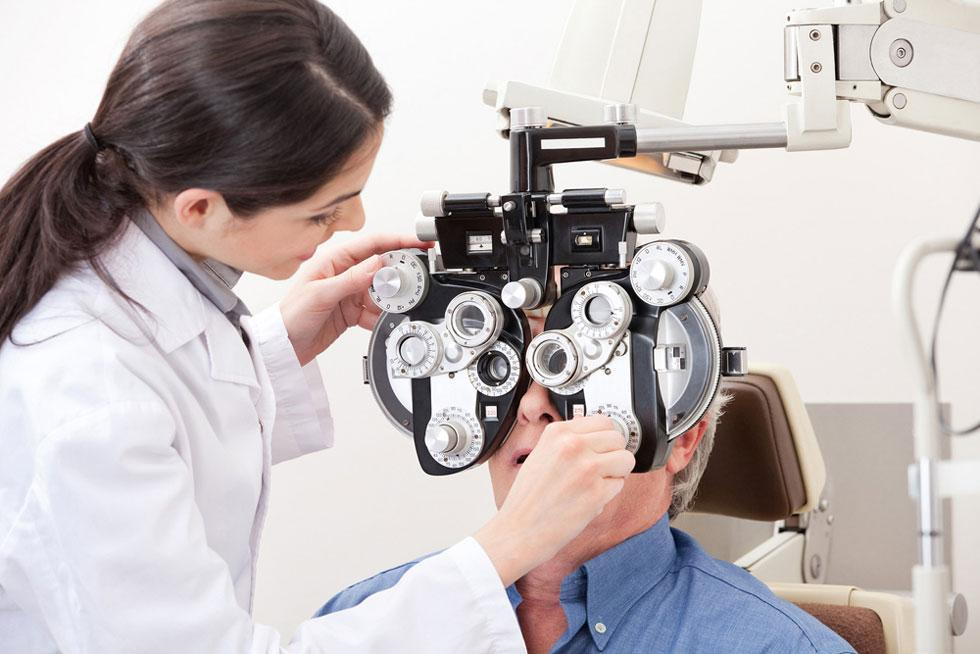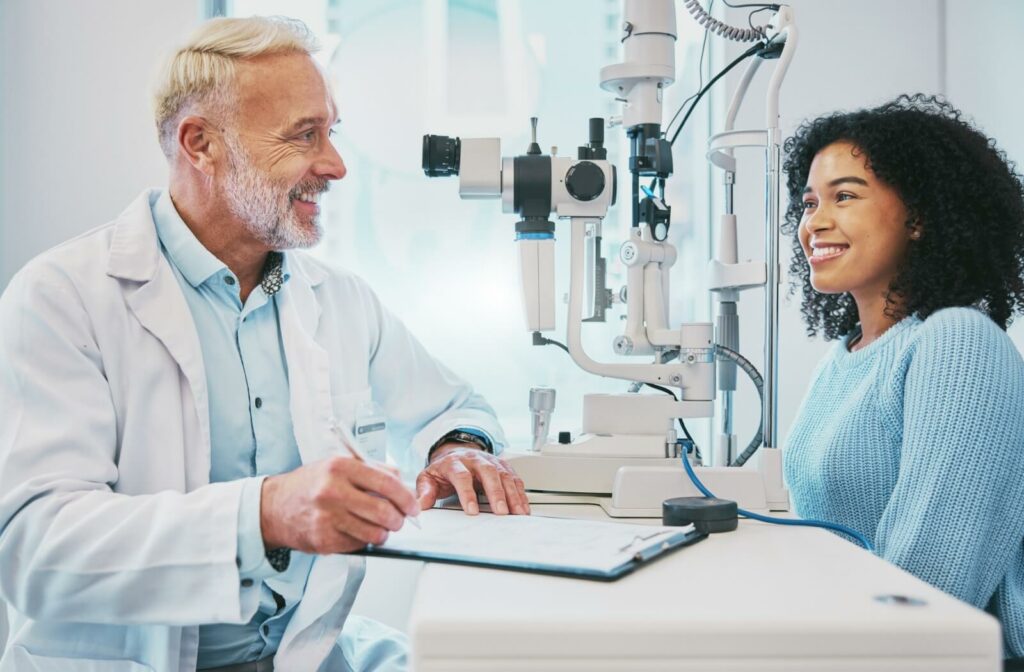All Categories
Featured
Opening Opportunities: Comprehensive Low Vision Rehabilitation Alternatives.
Living with reduced vision can offer special obstacles, yet contemporary recovery approaches encourage people to adapt and thrive. From innovative innovation to hands-on training, there are numerous alternatives designed to boost everyday life and foster independence. Below's a thorough take a look at the diverse rehab options available for those with low vision.
The Duty of Reduced Vision Recovery
Low vision rehabilitation concentrates on assisting individuals maximize their remaining vision and develop skills to handle their surroundings. With a mix of devices, training, and individualized assistance, rehab programs improve capability and increase self-confidence in browsing everyday activities.
Trick Low Vision Rehab Options
Custom-made Aesthetic Help
High-Powered Magnifiers: These devices come in portable, wearable, or electronic formats, permitting users to read, compose, or sight items up close.
Telescopic Glasses: Ideal for improving range vision, these glasses help with activities such as watching tv or analysis indicators.
![]()
Filter Lenses: Tinted lenses decrease glare, boost contrast, and supply UV protection, enhancing comfort and presence.
Technical Innovations
Electronic Magnification Gadgets: Desktop computer and mobile tools provide adjustable magnification, making it possible for simpler access to printed materials and digital content.
![]()
Voice-Assisted Innovation: Screen readers, voice-enabled mobile phones, and AI-driven applications aid individuals browse the digital globe extra effectively.
Wearable Vision Aids: Smart glasses furnished with cameras and auditory feedback supply real-time help with reading, identifying items, and spatial alignment.
Professional Training Programs
Orientation and Flexibility Training: This program teaches people just how to relocate with confidence within their homes and neighborhoods, usually including walking canes or guide canines.
Daily Living Abilities: Specialized training outfits individuals with techniques to perform crucial jobs such as food preparation, dressing, and handling family jobs.
Adaptive Visual Strategies: Therapists overview patients on leveraging field of vision or scanning methods to make up for vision loss.
Environmental Modifications
![]()
Easy adjustments in your home or job can considerably boost ease of access:
Using contrasting colors for much better object distinction.
Adding task illumination to boost visibility.
Noting home appliances with tactile indicators for much easier operation.
Psychological and Social Assistance
Handling vision loss usually includes emotional modifications. Support system and therapy services offer a risk-free area to share experiences and construct durability.
Peer mentoring programs attach people with comparable obstacles, cultivating friendship and shared options.
Accessing Recovery Services
Reduced vision rehab solutions are commonly available through:
Specialized Clinics: Optometrists and eye doctors educated in reduced vision treatment offer tailored analyses and services.
Not-for-profit Organizations: Teams like the American Foundation for the Blind and VisionAware offer sources, guidance, and references.
Neighborhood Centers: Neighborhood solutions might give inexpensive or free training and access to assistive gadgets.
Final Thoughts
By checking out the various rehabilitation choices offered, those with reduced vision can locate strategies that function best for their one-of-a-kind requirements and circumstances. If you or an enjoyed one faces vision difficulties, don't hesitate to reach out to a low vision professional to begin the trip towards empowerment and flexibility.
Living with reduced vision can offer special obstacles, yet contemporary recovery approaches encourage people to adapt and thrive. From innovative innovation to hands-on training, there are numerous alternatives designed to boost everyday life and foster independence. Below's a thorough take a look at the diverse rehab options available for those with low vision.
The Duty of Reduced Vision Recovery
Low vision rehabilitation concentrates on assisting individuals maximize their remaining vision and develop skills to handle their surroundings. With a mix of devices, training, and individualized assistance, rehab programs improve capability and increase self-confidence in browsing everyday activities.
Trick Low Vision Rehab Options
Custom-made Aesthetic Help
High-Powered Magnifiers: These devices come in portable, wearable, or electronic formats, permitting users to read, compose, or sight items up close.
Telescopic Glasses: Ideal for improving range vision, these glasses help with activities such as watching tv or analysis indicators.

Filter Lenses: Tinted lenses decrease glare, boost contrast, and supply UV protection, enhancing comfort and presence.
Technical Innovations
Electronic Magnification Gadgets: Desktop computer and mobile tools provide adjustable magnification, making it possible for simpler access to printed materials and digital content.

Voice-Assisted Innovation: Screen readers, voice-enabled mobile phones, and AI-driven applications aid individuals browse the digital globe extra effectively.
Wearable Vision Aids: Smart glasses furnished with cameras and auditory feedback supply real-time help with reading, identifying items, and spatial alignment.
Professional Training Programs
Orientation and Flexibility Training: This program teaches people just how to relocate with confidence within their homes and neighborhoods, usually including walking canes or guide canines.
Daily Living Abilities: Specialized training outfits individuals with techniques to perform crucial jobs such as food preparation, dressing, and handling family jobs.
Adaptive Visual Strategies: Therapists overview patients on leveraging field of vision or scanning methods to make up for vision loss.
Environmental Modifications

Easy adjustments in your home or job can considerably boost ease of access:
Using contrasting colors for much better object distinction.
Adding task illumination to boost visibility.
Noting home appliances with tactile indicators for much easier operation.
Psychological and Social Assistance
Handling vision loss usually includes emotional modifications. Support system and therapy services offer a risk-free area to share experiences and construct durability.
Peer mentoring programs attach people with comparable obstacles, cultivating friendship and shared options.
Accessing Recovery Services
Reduced vision rehab solutions are commonly available through:
Specialized Clinics: Optometrists and eye doctors educated in reduced vision treatment offer tailored analyses and services.
Not-for-profit Organizations: Teams like the American Foundation for the Blind and VisionAware offer sources, guidance, and references.
Neighborhood Centers: Neighborhood solutions might give inexpensive or free training and access to assistive gadgets.
Final Thoughts
By checking out the various rehabilitation choices offered, those with reduced vision can locate strategies that function best for their one-of-a-kind requirements and circumstances. If you or an enjoyed one faces vision difficulties, don't hesitate to reach out to a low vision professional to begin the trip towards empowerment and flexibility.
Latest Posts
Take Advantage of Exclusive Auto Repair Offers in Chicago at Montclare Auto Repair
Published May 31, 25
1 min read
Uncover Auto Services & More: Comprehensive Auto Care Solutions from Montclare Auto Repair
Published May 26, 25
1 min read
How to Know When Your Car Needs Expert Car Repair at Montclare Auto Repair
Published May 25, 25
1 min read
More
Latest Posts
Take Advantage of Exclusive Auto Repair Offers in Chicago at Montclare Auto Repair
Published May 31, 25
1 min read
Uncover Auto Services & More: Comprehensive Auto Care Solutions from Montclare Auto Repair
Published May 26, 25
1 min read
How to Know When Your Car Needs Expert Car Repair at Montclare Auto Repair
Published May 25, 25
1 min read